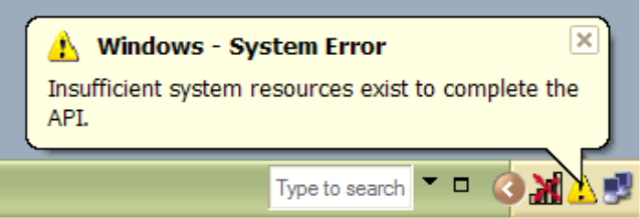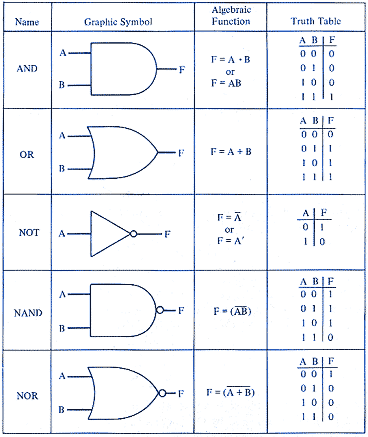Carnage 12 has become a bigger convention with more things of interest to us than in past years, perhaps in part because of absorbing some of the roleplaying that went on at
Bakuretsucon and Lorecon. Though the miniatures and boardgames parts seem to also have grown a lot.

Of six sessions, we spent three in games run by the same GM, Charlton Wilbur. We've played in his games at several previous area conventions, so we know we like his style and that he has the knack of pacing con games and explaining stuff in a way that gets us over the hump of learning a system and into having fun very smoothly. Plus he always brings us to stuff we haven't done before, which is a lot of what we go to cons for: experimenting with games I couldn't readily try at home. This time, all three of Charlton's games were GM-less collaborative storytelling games.
The first was the
Committee for the Exploration of Mysteries, a Baron von Munchausen style game set in the cliffhanger pulp genre. My favorite part: we needed to decide at the start what the secret was we'd uncover when we finally reached the Tomb of the Crystal Skulls, and I threw a real curveball out of nowhere: the people who vanished from Roanoke were there. Everyone liked it, and while it didn't come up until the last scene (I tried to set up chances to foreshadow it, but they never panned out) it played out very well. The game was a lot of fun and it was surprisingly easy to get into the swing of taking turns being the one framing scenes.
The second game was the
Shab al-Hiri Roach, in which a small New England university in 1919 is host to an ancient Sumerian roach which controls minds to spread mayhem and destruction. Our characters are professors vying for tenure in the backstabbing politics of academe, and for a while we got plenty of entertainment without the roach even entering into things, as we accused each other of wild sexual deviances, vied to undermine each other's academic standing, and pushed workload onto one another. The game soon became a web of intrigue with a surprising amount of discussion of shocking sexual practices between professors, coeds, the entire football team, the local police chief, and various others, most of whom ended up dying in scandalous murder-suicides or mysterious fires. My favorite part: the physics professor forced to teach first-year mathematics to students who used interpretive dance to express their feelings about mathematical concepts.
In the third game,
Geiger Counter, we simulated a survival horror game in which a green slime-mold creature invaded an explorer spaceship and devoured the entire crew. As often happens on Sunday morning games, most of the players didn't show up, so with only three players the game went very quickly. My favorite scene had no characters in it: the awful green thing was oozing through the ductwork under the floors into the engine room, but was repelled by the vibrations of the ship's crystalline engine. Of three PCs, only one died (though the entire rest of the ship's nameless crew was devoured).
We played one "safe bet" game, Tyler Dion's
GURPS Ghostbusters game, which was a blast. A new Ghostbusters franchise in Boston is assigned to deal with manifestations at the Flynn Theater in Burlington before a new play opens up. My favorite moment was one of our several attempts to figure out how to exorcise a demonically-influenced thespian without killing him (though we all wanted to kill him anyway). Responding to the idea of a holy water enema, I suggested a holy saline water IV would be better, but none of us knew first aid. However, there was the ghost of a UVM medical student in the theater... perhaps we could convince the ghost to guide someone's hand as they put in the needle. Unfortunately, we didn't get to do that, but fortunately, my idea to crib a scene from Ghostbusters II panned out.
The other roleplaying game slot could have been another GURPS game of Tyler's, but we decided against it because we know GURPS, we know the setting he used and have played in it before, we know Tyler, and it's another safe bet. Instead. we took a chance on a spaghetti western (not a genre we know that well; I've only seen four westerns and none of them really spaghetti westerns) using an unfamiliar game called
WHAP. It turned out that the GM was the game's author, and he was too eager to promote the game and his wife's game, but what was really a pity was that the game system itself didn't run well even when being run by its author. It had some very egregious mechanical difficulties, and even with the spit-and-bailing-wire of the GM making up rules and amendments on the fly, it still didn't quite work. I could have forced myself into the game more and made some fun anyway, but some tummy distress interfered and I just let it slide. At least my tummy chose a bad game in a genre that isn't my favorite to act up. Still, it makes me want to do a spaghetti western right, and I feel sure that even having seen very few westerns, and without a rule system allegedly tailored to it, I could do better with minimal prep. Oh well: if the point of playing at a con is to take risks in order to experiment with unfamiliar games, you have to take a few stinkers.
We didn't make either of the board games we signed up for, but both were first thing in the morning, so they were almost a sure thing to miss anyway, the timing being so tight (and we didn't get a room at the resort itself, they were sold out). But we did get a very fun pick-up game of
Ticket To Ride, a board game of building a railroad system across the United States, which was very fun. It also had the unusual property for a board game that it would probably work fine with two people, so it's now on
my wish list.
I was very pleased to find they had printed the spreadsheet grid I made (to help me figure out what was at the same time as what, across all game types) to use to help other people figure out what to join. (They might have asked or told me though! But it's still nice. Hopefully they'll produce a grid like that as part of their own materials next year.)
We'll probably go next year, and maybe I'll see about running something. I haven't GMed at a con in years, and got discouraged because my games (which were less offbeat than Charlton's!) often got no players. Maybe I'm ready to try something more mainstream... or to get Charlton's blessing so I can run something less mainstream and still attract people.
Oddly, for once I didn't bring
enough dice. Usually I bring a ton of dice and then only use 3d6 or maybe no dice. And this time, lots of fuzzy storytelling games. And yet I was short dice in every session. Go figure. My nice new sunburst dice were very pretty and I like them, but I've got plenty more where those come from...
The dealer room was surprisingly small for a con as big as Carnage apparently is. Maybe for the best, since I didn't spend much money there. (I might have bought Ticket To Ride if the prices were a little less thoroughly uncompetitive with Amazon. I really try to cut the local sources every break, but when we're talking $50 instead of $38, that's too far.)
 What inspired me reading it again is reading Companion to A Sand County Almanac: Interpretive and Critical Essays, which as the title suggests is a set of academic analyses of the book, its author, and its message. Or, rather, not quite reading it, since I ended up skimming most of it.
What inspired me reading it again is reading Companion to A Sand County Almanac: Interpretive and Critical Essays, which as the title suggests is a set of academic analyses of the book, its author, and its message. Or, rather, not quite reading it, since I ended up skimming most of it.
































 RealTime and RTC
RealTime and RTC Prism
Prism Uncreated
Uncreated Bloodweavers
Bloodweavers Foulspawner's Legacy
Foulspawner's Legacy Lusternia
Lusternia